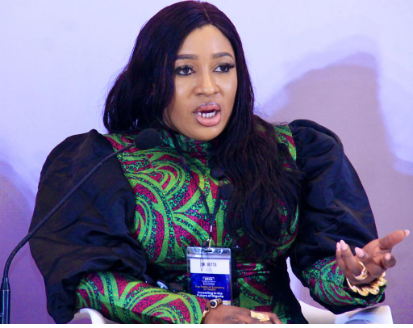The federal government on Monday, October 9, said that it would reintroduce the TraderMoni scheme next month.
In the past administration, Tradermoni was one of the programmes under the Government Enterprise Empowerment Programme (GEEP).
The interest-free loan scheme for traders which started in 2018, has been on hold for some time.
With the reintroduction of the scheme, each beneficiary is expected to get N50,000 to support their business.
The Minister of Humanitarian Affairs and Poverty Alleviation, Betta Edu disclosed this in an interview on television.
Edu said,
“Now, for the first set, which we are starting in November, we are selecting one big market per senatorial district. That is 109 markets and we are going into the markets, capturing the traders in their shops in the markets.
“Unlike the N10,000 given to traders in the earlier phases, there is more money for the beneficiaries. It’s N50,000 to support their businesses.
“We are not interested in party lines, or any social or personal interest. We will capture them in the market and then after doing so, we will create a bank account just as they are being captured, the monies are sent directly from the CBN account.”
According to her, it is a one-off interest-free loan with those who repay qualifying for another loan.
She equally said the conditional cash transfer policy of the government is set to return later in the month.
She said,
“With the approval from the President which we hope to get this week, on the 17th of October, we will be officially launching the conditional cash transfer to 15m households in Nigeria.
“Presently we are having a verification exercise, every State can bear us witness that we have put boots on the ground, persons are working with the state cash transfer office as well as the governors who are the head of the steering committee, and then several other persons in the state the local government heads, the community heads can testify also that we are on ground to ensure that those who are on the national social register truly are Nigerians and they fall within the under $1.95 a day and they deserve to have it.”
On why the verification was important, she said;
“Remember some people on the register will probably be dead, some people on the register would have moved out of that bracket because they got a job and they’re no longer where they used to be and all of that, we need to be able to mind find that data and get these people out and deal with people.
“We are on the field cleaning up that data and doing a complete verification and we’re putting juxtaposing both the BVN and the rest of it to identify these people and be sure that we are dealing with authentic persons.
“We are also capturing the head of the households as well as a picture of the household, so we can locate each of households, they’re numbered so people can go there and verify against the register.
“We are equally doing a kind of rapid response expansion by capturing persons who were left out of the register just to fill in the spaces of those who are either dead or have moved out of that bracket.”
On the number of people the government hopes to lift out of poverty through its various programmes in one year, she said,
“For the conditional cash transfer, we’re working with 15 million households which amount to about 60 million individuals directly touched by the conditional cash transfer.”
She added,
“On the N-Power job creation which is the renewed hope job creation scheme, we are working on 5 million Nigerian youth between the ages of 18 and 40 and this will be taken 1 million per year on the
“GEEP programme, we are working on 1.5 million Nigerians and this will include the market women, the traders for capital, and then the farmers.
“For the Homegrown School feeding which is expected to deal with the nutrition, health and in a way act as an incentive to keep children in school, we are looking at reaching out to over 10 million children within the next four years. So in the next year, we would have directly touched at least 70 million Nigerians.”


